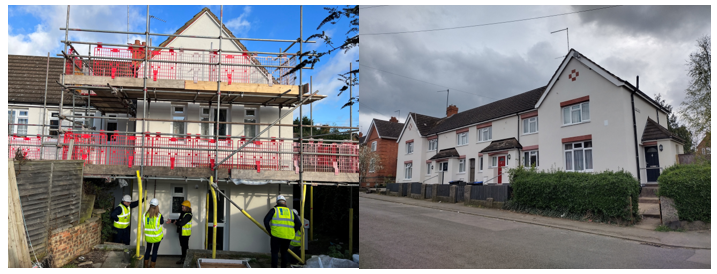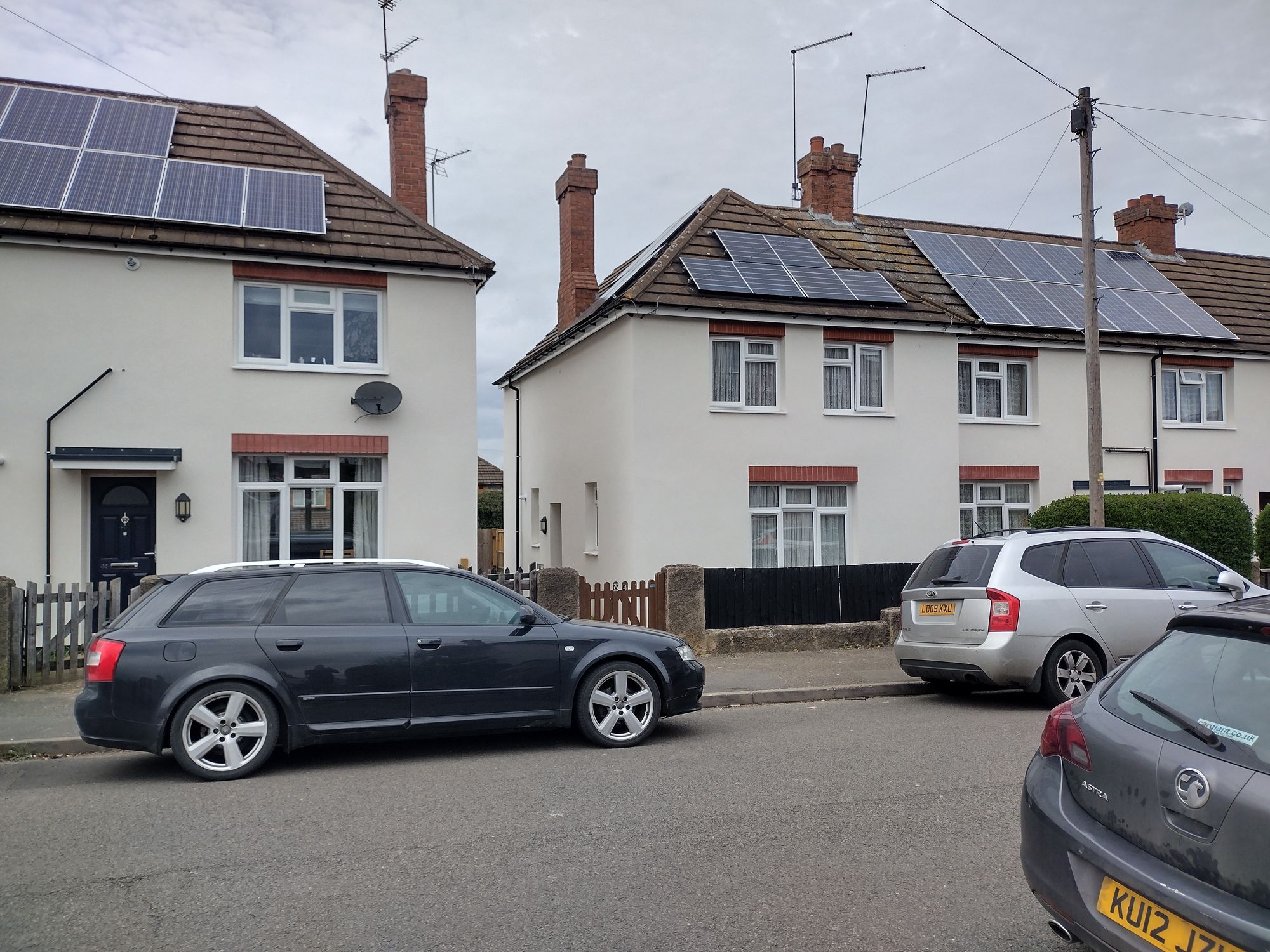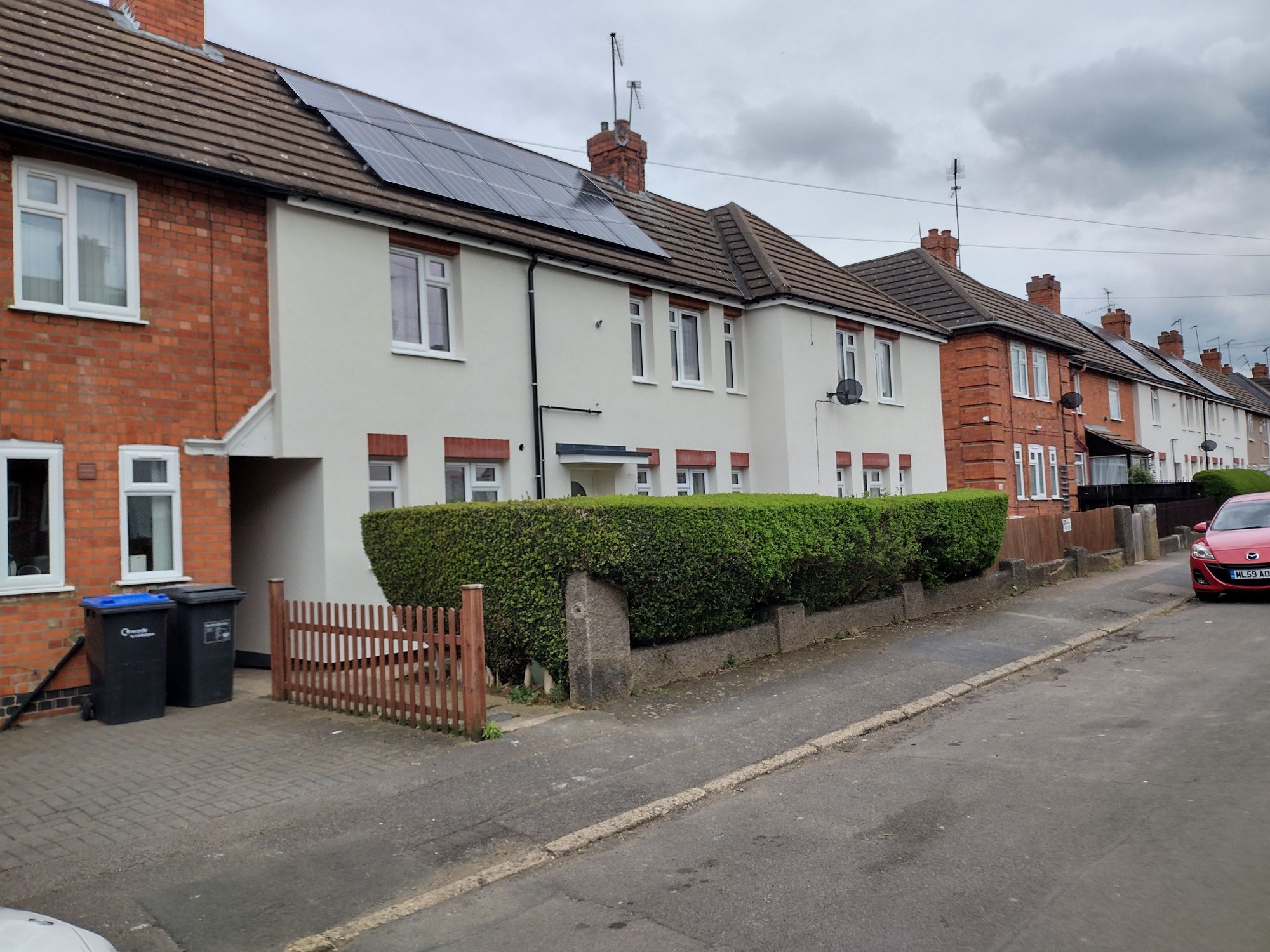CA-WN talks to Paul Tucker, Northampton Partnership Homes Sustainability Manager

Northampton Partnership Homes (NPH) was set up by Northampton Borough Council in 2015 to manage the council’s housing stock, and some other assets. NPH is now owned by WNC but has its own management team and Board of Directors. NPH is responsible for allocations and lettings, repairs and maintenance, providing housing management services including support services and dealing with anti-social behaviour, and building new homes. Currently, NPH looks after around 12,000 homes in Northampton.
CA-WN: You are the Sustainability Manager for NPH – how long have you been in the role, and what is your background?
Paul: I’ve worked at NPH as the Sustainability Manager for about two and a half years now. The time has really flown by. My background is quite varied. When I left school, I wanted to be a rock star and really tried to do that in my early twenties - I was in a band that released a record and there’s a terrible video of us somewhere on the internet! Then after that I worked as a lorry driver for a while. After I realised how much I disliked that job, I started studying Environmental Management with the Open University and was very fortunate to land an entry level position at Northamptonshire County Council in about 2015.
I was a Carbon Reduction Officer, working in the Energy and Carbon Management Team, and I became really involved in energy efficiency assessments of council assets (mostly schools), offering support and advice to reduce energy consumption, and managing projects on energy efficiency and renewable energy. It was a fantastic period of my career, I learnt so much about energy, and before I moved on from NCC I had reached the position of Energy Manager.
After finishing at NCC I had an enjoyable but shorter than expected period working for the University of Northampton before joining NPH in October 2019. I’ve been lucky to have had some really interesting positions, often in the grey area between public and private sector, across some of Northampton’s key organisations. It’s been an interesting journey, that’s for sure, and I feel really proud to be working in such a positive field in my hometown.
C: And what does a Sustainability Manager do – it’s a job role a lot of people might not be familiar with?
P: My job is about making things better! I like to think of it as this: life as we live it in the UK today is unsustainable, we are simply using and abusing the Earth in such a way that eventually it won’t be able to support us. My job is about making the way we live less unsustainable, with the end goal to eventually be living in a world where our use and abuse of nature is within parameters that allow the Earth to continue providing for us.
Clearly, I can’t do that on my own, and we probably won’t achieve that in my lifetime, but that is the aim of my job role, to reduce our impact on the environment to within reasonable parameters, for the benefit of society as a whole, for people, planet, and prosperity.
My day to day is quite varied. I like to get involved in sustainability in a very broad sense, with energy and carbon reduction being a key focus, but also for example working with Anglian Water to reduce water consumption, and I represent NPH as part of the West Northants Sustainable Food Partnership. I’m responsible for strategies and policies that NPH has such as an Environmental Policy and a Fuel Poverty Strategy that I’m hoping to be published soon. A big part of my job over the past 18 months or so has been our work on whole house retrofit with funding from the governments Social Housing Decarbonisation Fund.
C: I understand NPH successfully applied for a decarbonisation grant – can you give us an overview of how this will be spent, and how it fits into NPH’s plans to achieve net zero carbon?
P: This is the Social Housing Decarbonisation Fund, which gives us funding for the whole house retrofit project. NPH has been a part of this project from the first round of funding which was known as the demonstrator phase last year, and we gained further funding this year which is known as Wave 1. The government funding aims to develop approaches to retrofitting homes to very high standards of energy efficiency, so it’s a great opportunity for NPH and WNC, and has great benefits to our residents too.
It’s a high-profile funding stream, and we have been very successful working alongside WNC to bring in over £9 million of investment to Northampton. This programme is the start of what will feed into an approach to improving existing housing to zero carbon standards. I hope that this approach will influence all sectors of housing, not just social housing. Our approach has been to retrofit some of the oldest housing we manage, to bring them up to energy efficiency standards comparable to new build homes. We have some A rated properties, they’re not quite zero carbon (the EPC says it emits 0.3 tonnes of CO2 per year) but we can definitely call the finished homes ‘zero carbon ready’, which is pretty good for a home built around 1930.
The work we’ve done has focused on improving the fabric of the building, and we’ve just worked on houses so far. We’ve wrapped the homes in insulation, called External Wall Insulation, which is up to 20cm thick and goes all the way down to the ground – even into the ground in some cases. We’ve installed new, high-performance windows and doors, and topped up loft insulation to 400mm. With all this added insulation, we’ve had to make sure the homes are well ventilated, so we’ve installed mechanical ventilation in all of the homes. In some of the homes, we’ve installed solar PV and replaced gas central heating with air source heat pump systems.

The project has shown that homes can be retrofitted to a zero carbon standard, there shouldn’t be any doubt about that. We’ve worked on homes that are around 90 years old and brought them up to a great standard. The challenge is in building up the skills to do this at scale, and also making it more affordable. One of the aims of the SHDF is to achieve cost reductions on the whole house retrofit approach, as at the moment this work simply isn’t feasible without the funding.
Over the next year or so, NPH will develop plans for net zero carbon and I’m sure WNC will too, and the work we’re doing on this project are the first baby steps for such plans, proving that it can be done.
C: How much do you expect the planned work to benefit NPH housing tenants, in terms of warmer homes, lower energy bills and reduced carbon footprint?
P: At the start of the programme, we estimated that energy costs for households in the scheme would reduce by around 50%. However, since then the cost of energy has gone up by more than 50%. The improvements have protected these households from the energy price rises in ways we couldn’t have predicted, and we haven’t fully assessed this yet, but based on today’s prices, we imagine the energy savings will be far greater than we anticipated.
We estimated carbon reductions would be around 70%, but in some cases, we’re seeing over 90% carbon reduction. We’re in the process of assessing the carbon and energy cost savings as we’re coming to the end of our demonstrator phase and I hope we will have some impressive statistics to release in the near future.
In terms of warmer homes, a lot of the work took place over winter and we had residents telling us the difference the insulation made pretty much instantly. Installing External Wall Insulation stops walls getting so cold which reduces the risk of condensation build up, so alongside the improved ventilation, the internal environment should be much healthier, more comfortable, with less humidity and greatly reduced risk of damp and mould.
My personal view is that the aim of the retrofit work above all else is to make the homes better, and that means better in the eyes of the people living in them. If we are reducing the carbon emissions of the homes but making the people living in them miserable then the work has failed. We’re working with the University of Northampton to assess the impact on households as well as doing some other monitoring and evaluation of the retrofit works. The lived-in experience is key to understanding how we adapt and develop an approach to decarbonising housing.

C: Will there be things that private homeowners and landlords can learn from this project too, and will there be information made available (e.g. on costs and benefits) to help them make informed choices about retrofitting their properties?
P: Yes, definitely. We’ve shown that it is possible to retrofit a home to be zero carbon ready, but this is not a one size fits all solution, the lesson to be learnt for homeowners and landlords is about process. That means working towards outcomes rather than focusing on installing measures. It is having a long-term vision that you strategically aim for, taking appropriate opportunities and trigger points to do them, and recognising that it is unlikely you can do everything at once. For example, if you’re relaying a floor, consider installing insulation; if you’re re-rendering, consider installing EWI; if the boiler has packed up, consider alternative options, etc. But doing these things with a plan.
I recognise all too clearly how difficult it is to translate this into the context of a private homeowner. I’m starting this journey on my own home but finding it incredibly hard. I know what outcome I want to achieve, but it’s hard to find and manage suppliers, to understand what sort of assessments are really required on a one home project, and a whole bunch of other uncertainties that I’m struggling with. It is a different world working on a multimillion-pound major project with a team of people working together, to a homeowner trying to manage the process on your own.
I hope a key output of our retrofit project is some really helpful insights for homeowners and private landlords to make this easier. There are huge benefits that could be achieved, and I think support and advice needs to be made available. If we can translate our project success into meaningful guidance, then I would absolutely love to be able to offer that.
C: What’s your personal top tip to be more energy efficient at home?
P: Just common sense. We waste so much energy on so many things. Turn things off when you’re not using them, be aware of the energy you’re using and ask yourself if you need to be using it. Do you over-fill the kettle to make a cup of coffee? Are you running the dishwasher half full? Are all the lights on when nobody’s around? Is the TV on and no-one’s watching it? These might seem like small insignificant things, but they all add up to a huge amount of waste. Stop wasting energy!
C: If Boris Johnson (or Jonathan Nunn) asked you what one thing they could do to help NPH achieve its net zero target, what would it be?
P: There really isn’t one silver bullet. Achieving a net zero target is a complex issue. I think the thing I would most like governments to do is work harder on the brand. Net Zero has become a brand and it’s quite divisive. Some people think we should be doing it at all costs, others think it’s a waste of time. Some people don’t understand what it means, and there is no surprise about that as it is a concept considered in different ways by different people. To achieve net zero carbon, we need everyone to be onboard, to understand and support the aims and to consider the benefits appealing and desirable on a personal level. We don’t have that yet on a societal level. That’s what I would like Boris Johnson and Jonathan Nunn to work on.
Net Zero Carbon is a huge challenge, and whether we think we can do it or think we can’t do it, we’re probably right.
